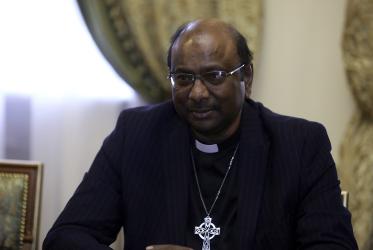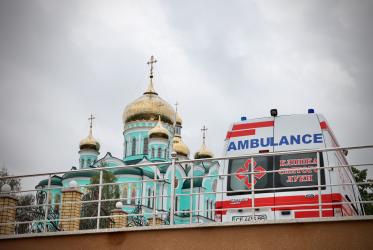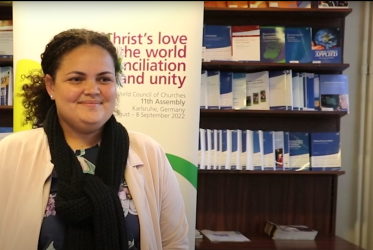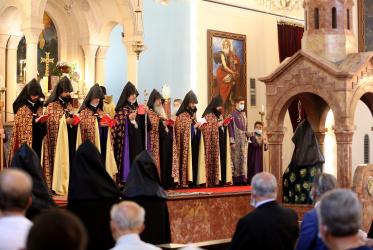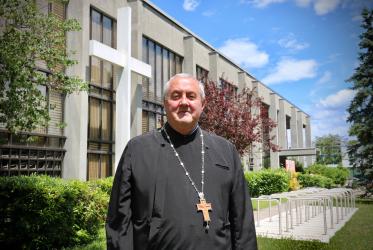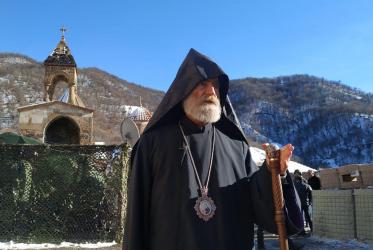Displaying 1 - 18 of 18
22 September 2023
Ecumenical delegation visits Armenia
19 September 2023
Christ’s Love (Re)moves Borders – GETI 2022 in images
13 September 2022
Ukraine: Responding to humanitarian need
08 September 2022
Монастир в Україні відповідає на наслідки війни
11 August 2022
Monastery in Ukraine responds to the consequences of war
09 August 2022
Отець Іоан Саука: «Бог на боці стражденних»
14 April 2022
Media accreditation opens for the 11th WCC Assembly
31 January 2022
An interview with the Ethiopian Patriarch, Abune Matthias
14 February 2017
